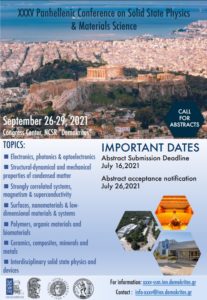INVITED SPEAKERS
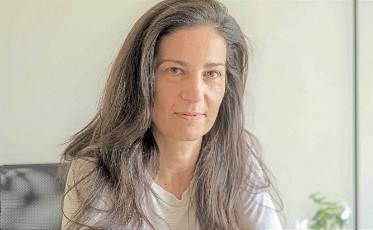
Dr Athanassia Athanassiou
Istituto Italiano di Tecnologia (ITALY)
Athanassia Athanassiou is Principal Investigator at the Istituto Italiano di Tecnologia (IIT), Genoa, Italy. She has a degree in Physics from the University of Ioannina in Greece, an MSc from the University of Manchester and a Ph.D. in Physics from Salford University in UK. From 2000 to 2005, she was a Postdoc and Collaborating Researcher at FORTH in Crete, and in 2006 she became Senior Researcher at the National Nanotechnology Laboratory, CNR-Istituto di Nanoscienze, Lecce, Italy. In 2011, she joint IIT and nowadays her group of Smart Materials counts about 50 people that work on sustainable materials and technologies for the benefit of environmental and human health. She has published 380 articles in scientific journals, various chapters in scientific books, and has acted as scientific editor. She has 26 Italian and international patents. The last seven years her group has participated in six H2020 EU projects, in three Institutional projects, in thirty Commercial projects with national and international companies, and has founded two joint labs with industrial partners.
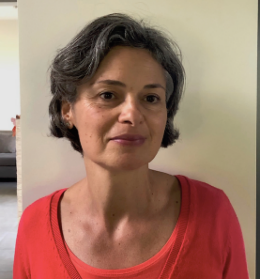
Prof. Maria Chatzinikolaidou
Department of Materials Science and Technology, University of Crete (GREECE)
Dr. Maria Chatzinikolaidou, FBSE, is an Associate Professor of Biomaterials for Tissue Engineering at the Department of Materials Science and Technology at the University of Crete (https://www.materials.uoc.gr/el/general/personnel/mchatzin.html), and affiliated faculty member at Foundation for Research and Technology – Hellas (FORTH). Her research interests focus on the development of biomaterials and scaffolds for tissue engineering applications including bone, cartilage, dental, cardiovascular, and the validation of their in vitro and in vivo biocompatibility, functionality and biomechanical characteristics. She is an associate editor in Tissue Engineering, in Frontiers in Bioengineering and Biotechnology, in BioNanoMaterials, in Materials, and editorial board member in Regenerative Biomaterials.
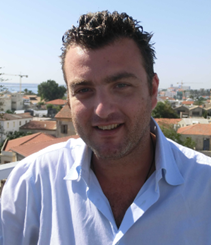
Prof. Stelios A. Choulis
Mechanical Engineering and Materials Science and Engineering, Cyprus University of Technology (CYPRUS)
.
Stelios A. Choulis is Professor of Material Science and Engineering at the Cyprus University of Technology (2008-present). He was the Organic Photovoltaic Device group leader of Konarka Technologies (2006-2008) and research and development (R&D) engineer of the Osram Opto-Semiconductors Inc, Organic Light Emitting Diode R&D team (2004-2006). During his PhD and first post-doc research associate (PDRA) position at Advanced Technology Institute (1999-2002, University of Surrey) he investigated the optical properties of quantum electronic materials and opto-electronic devices. In 2002 he joined the center of electronic materials and devices (Imperial College London, UK) as PDRA and work on the transport and recombination dynamics properties of molecular semiconductors (2002-2004). His current research interest focuses on the development of functional materials and devices for advanced optoelectronic applications.
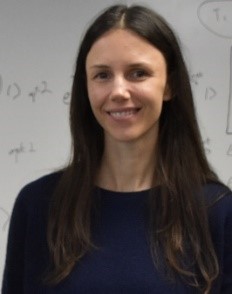
Prof. Sophia Economou
Department of Physics, Virginia Tech (USA)
Prof. Economou obtained her PhD in 2006 from the University of California San Diego. After that, she spent nine years at the US Naval Research Lab, first as a National Research Council Postdoctoral Fellow, and then as Research Staff. She joined Virginia Tech in 2015 where she is currently a Professor of Physics and the Hassinger Senior Fellow of Physics at Virginia Tech. She focuses on theoretical research in quantum information science, including quantum computing, quantum communications, and quantum simulation algorithms.

Prof. Philomela Komninou
Department of Physics, Aristotle University of Thessaloniki (GREECE)
Philomela Komninou is a Professor of the Department of Physics at the Aristotle University of Thessaloniki. She is Director of the Electron Microscopy and Structural Characterization Laboratory since 2013, Head of the Nanostructured Materials Microscopy Group and Vice-Director of the Postgraduate Master’s program “Physics and Technology of Materials”. From 2012 she is the President of the Hellenic Microscopy Society, a branch of the European Microscopy Society. She had been the National delegate in the “RESEARCH AND INNOVATION” program committee of the European Commission; Member of the National Committee for the configuration of the Greek positions of the EC FP7 Framework program for the “Development of the National Action Plan for the Mobility of Researchers” and National expert in the “PEOPLE” Program committee. She is a member of numerous national and international scientific societies.
Professor Komninou specializes on the structural characterization of advanced materials and the relation of microstructure with physical properties using advanced Transmission Electron Microscopy (TEM) and quantitative high resolution TEM/STEM combined with computational modeling. She has published more than 220 scientific papers in international peer-reviewed journals, five invited chapters in international scientific books and seven invited international scientific volumes. She has presented her work in numerous international and national conferences and workshops and has coordinated and/or participated in many International and National research projects.

Prof. Efstratios Manousakis
Department of Physics, Florida State University (USA) and Department of Physics, National and Kapodistrian University of Athens (GREECE)
Dr. Manousakis received his Ph. D. in Theoretical Physics, in July 1985, from the University of Illinois at Urbana-Champaign (First Ross J. Martin Award for his thesis). After a Post-Doctoral Research position at the Center for Theoretical Physics at the Massachusetts Institute of Technology (1985-1987) and at the Supercomputer Computational Research Institute (1987-88), he joined the Physics Department of the Florida State University (FSU) (1988). He received the PAI Award for Excellence in Teaching and Research (1998) and the Developing Scholar Award (1990) from FSU. Presently, he is Professor of Physics at the University of Athens and he is the Donald Robson Professor of Physics and holds the title of Distinguished Research Professor at FSU. He was named Fellow of The American Physical Society in 2002, Fellow of the Institute of Physics in 2008, and Fellow of American Association for Advancement of Science in 2018. Dr Manousakis’ group develops and applies computational and theoretical methods to study novel collective behavior in certain quantum many-body systems which arises because of strong correlations among the fundamental microscopic degrees of freedom. Examples of such systems are: (a) Superconductors and Strongly Correlated Electrons, (b) Superfluids, (c) Electrons in Solids and The Two-Dimensional Electron Gas, (d) Quantum Phase Transitions in Atomically-Thin Films and (e) Phase Transitions in Restricted Geometries and Finite Size Scaling (f) Role of correlations in topological materials.

Prof. Angelos Michailides
Yusuf Hamied Department of Chemistry, University of Cambridge (UK)
Angelos Michaelides obtained a PhD in Theoretical Chemistry in 2000 from The Queen’s University of Belfast. Following this, he worked as a post-doctoral research associate and junior research fellow at the University of Cambridge and then at the Fritz Haber Institute, Berlin as an Alexander von Humboldt research fellow and subsequently research group leader. Between 2006 and 2020 he was at University College London where he was Director and Co-Director of the Thomas Young Centre: The London Centre for the Theory and Simulation of Materials and the founding Director of the Materials and Molecular Modelling Hub. Since 2020 he has been the 1968 Professor of Chemistry at the University of Cambridge.
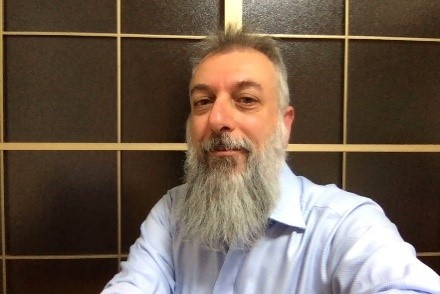
Dr Nikos Tagmatarchis
Director, Theoretical and Physical Chemistry Institute, National Hellenic Research Foundation (GREECE)
Nikos Tagmatarchis is the Director of the Theoretical and Physical Chemistry Institute at the National Hellenic Research Foundation. He holds degree in chemistry (1992) and PhD in organic chemistry (1997) from the Department of Chemistry at the University of Crete. His research interests focus on the chemistry of “Carbon-based nanostructured materials and two-dimensional analogues of graphene” for energy-related applications. Dr. Tagmatarchis and his team conduct cutting-edge research to develop innovative hybrid low-dimensional nanomaterials with custom structural, electronic, photophysical, redox and electrocatalytic properties. He has long experience in this field of research, having demonstrated scientific excellence certified by more than 260 original scientific articles and his work has received more than 15,000 citations accompanied by an impact index of h = 51.

